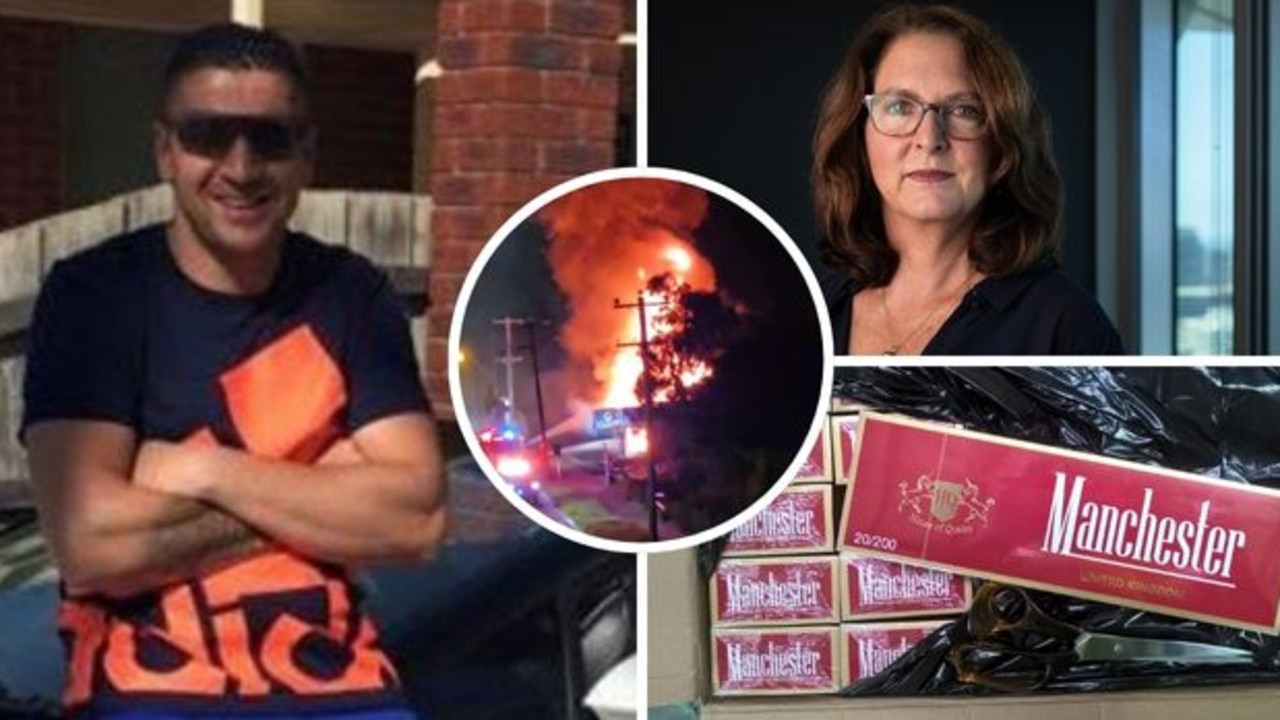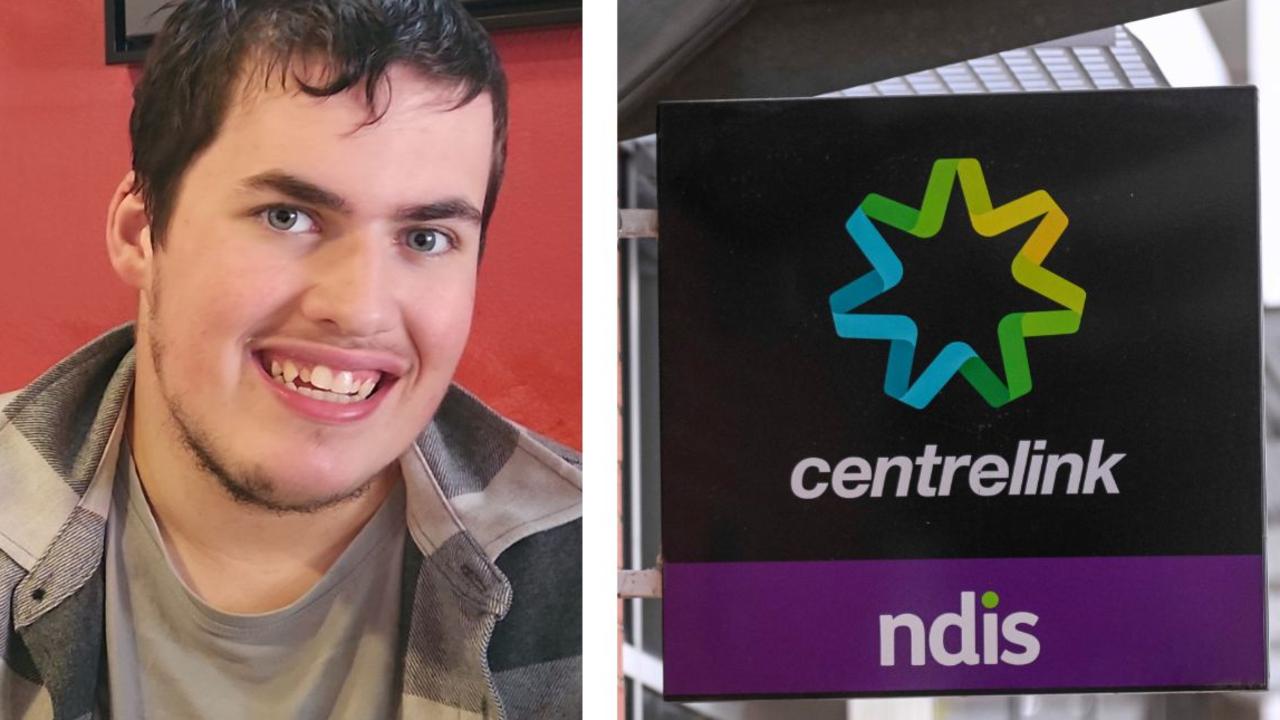Doctors have voiced their support for the referendum as campaign enters final fortnight
More than 1000 doctors have signed an open letter backing the Voice as the best way to close the health gap harming Indigenous Australians, while the Yes campaign highlights the stark reality of disadvantage in a chilling new ad.
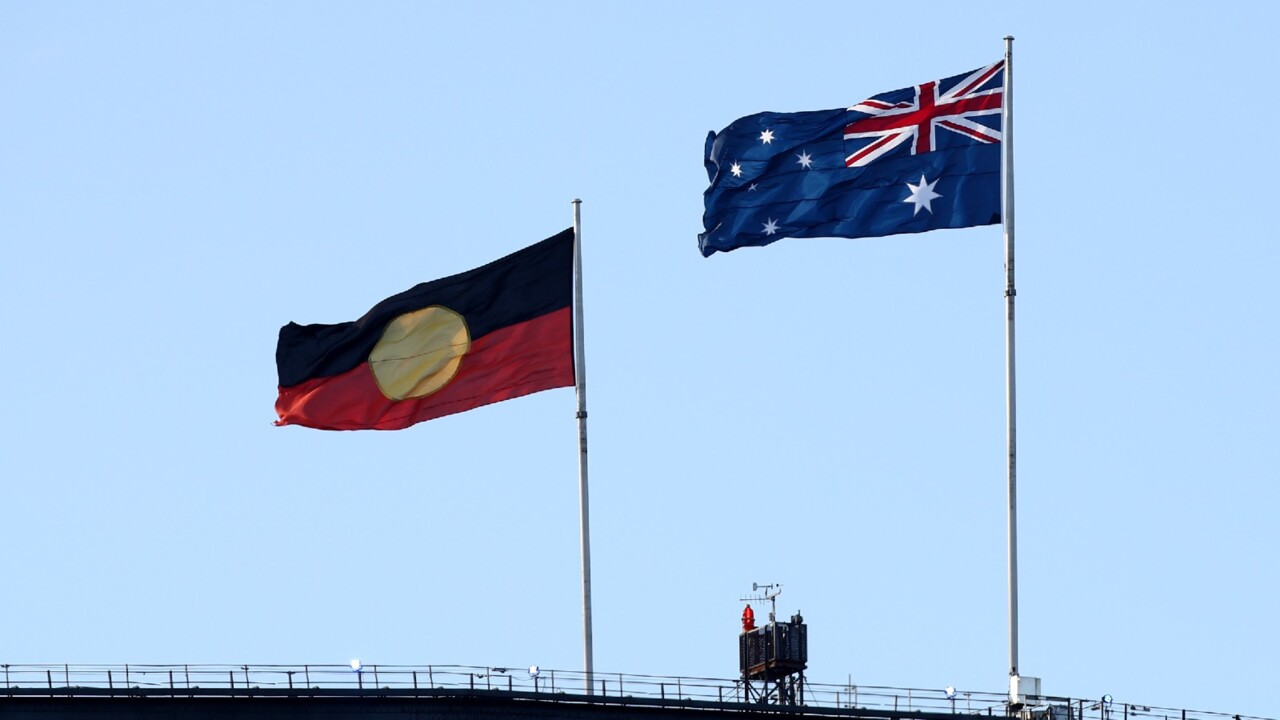
National
Don't miss out on the headlines from National. Followed categories will be added to My News.
More than 1000 doctors have signed an open letter backing the Voice as the best way to close the health gap harming Indigenous Australians, while the Yes campaign highlights the stark reality of disadvantage in a chilling new ad.
As medical professionals lined up to back the referendum, the Prime Minister joined volunteers door knocking in Hobart’s battler suburbs where the Yes movement is hoping to win over undecided voters as pre-polling opens nationwide.
Hundreds of doctors have revealed they are voting Yes because they believe the Voice “presents a tangible, once-in-a-generation opportunity to begin to heal, build trust and unite to improve the health and wellbeing” of Aboriginal and Torres Strait Islander people.
Dr Adam Steinberg, who is a kidney specialist at Melbourne Hospital, said listening to patients was “fundamental to healthcare” and the persistent gap in health and wellness for Indigenous Australians showed current methods of engagement and consultation were not working.
“The Voice would ensure engagement with communities happened from the start of a health policy or service delivery, rather than something that comes up later in the process,” he said.
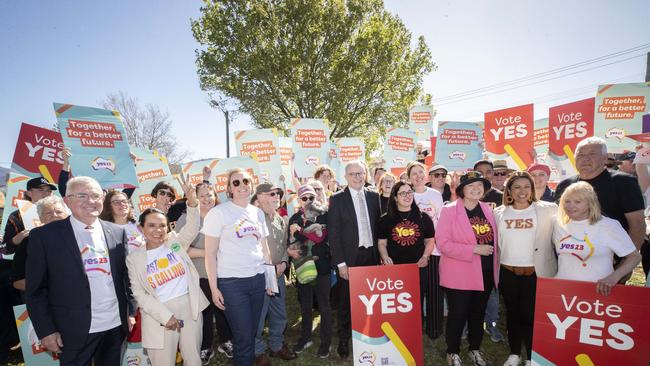
Dr Steinberg said the Voice would “embed” proper consultation from the very early stages of any health policy, and in turn give communities a sense of ownership over the outcomes.
General Practitioner Dr Catherine Pendrey, who worked in the Northern Territory for five years, said while there had been important gains in some areas of Indigenous health, the improvements had been “far too slow”.
“A Voice is about translating local approaches to health to a national level so all policies can be informed by those most affected,” she said.
Dr Pendrey said a Voice could ensure issues like housing, which has a direct impact on health, were adequately addressed.
“I’ve seen families and parents bringing their children into the clinic, doing the right thing, but if they’re living in very poor quality housing in overcrowded settings, it can be very challenging to overcome those barriers,” she said.
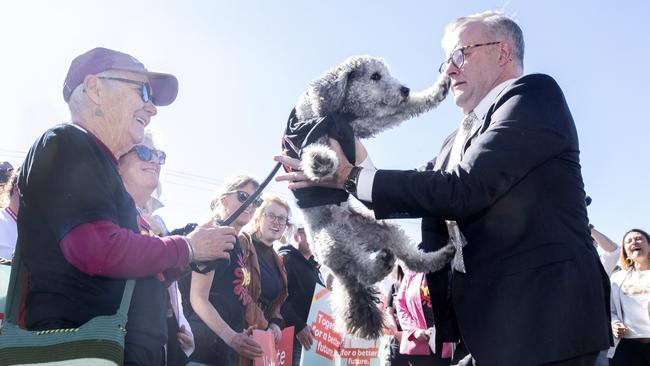
A new Yes campaign ad highlights the eight-year gap in life expectancy, higher infant mortality, lower employment rates endured by Indigenous Australians, followed by a sombre tagline “a no vote means no progress”.
Meanwhile Mr Albanese joined dozens of volunteers as they prepared to doorknock in the Hobart suburb of Goodwood, telling the crowd the Voice was neither a “radical” nor a “conservative” proposal, but instead simply a “mainstream one”.
“You get better outcomes, and much more efficiency when you listen to people,” he said.
“But you also get something else, you get Indigenous people taking responsibility for those outcomes, which is why this should be above politics.”
Mr Albanese said many Australians were only now focusing on the referendum question, meaning in the last two weeks “every conversation that people have will be critical”.
“That’s how this referendum will be won,” he said.
Mr Albanese said his “easy pitch” to voters was that the Voice was about recognising First Nations people, and giving them a Voice to provide non-binding advice on issues that impact their communities.
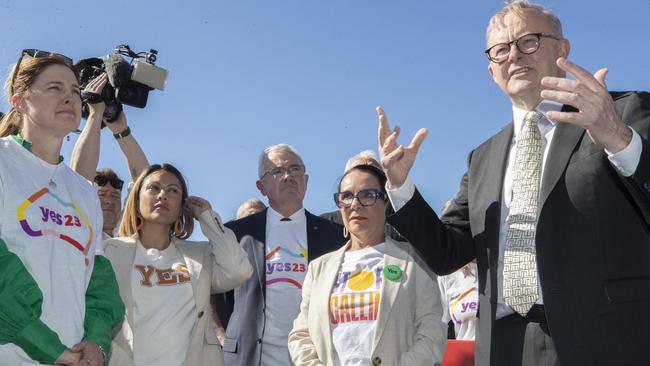
“You get better outcomes, and much more efficiency when you listen to people,” he said.
“But you also get something else, you get Indigenous people taking responsibility for those outcomes, which is why this should be above politics.”
Armed with promotional posters, stickers and badges, the Yes23 voters were instructed to specifically look for “undecided” voters, and move on from anyone they meet who indicates they will be voting No.
With time running out until the October 14 poll, the Yes campaign’s strategy has been to concentrate volunteer efforts and resources where they are likely to have the highest impact.
Mr Albanese was flanked by Indigenous Australians Minister Linda Burney, Independent MP Andrew Wilkie and other local Tasmanian politicians as he praised the volunteers for their dedication to the Voice.
Ms Burney described the volunteer army as a “shot in the arm” for the campaign to “keep going”.
“It says to me, as a Yes vote will say on the 14th of October, non-Aboriginal Australia is with you, we’re seeing you and we’re hearing you,” she said.
“And for Aboriginal people that will be an enormous moment.”
More Coverage
Originally published as Doctors have voiced their support for the referendum as campaign enters final fortnight




